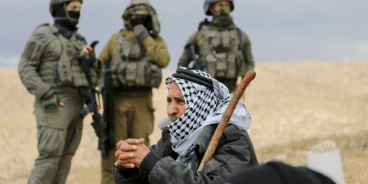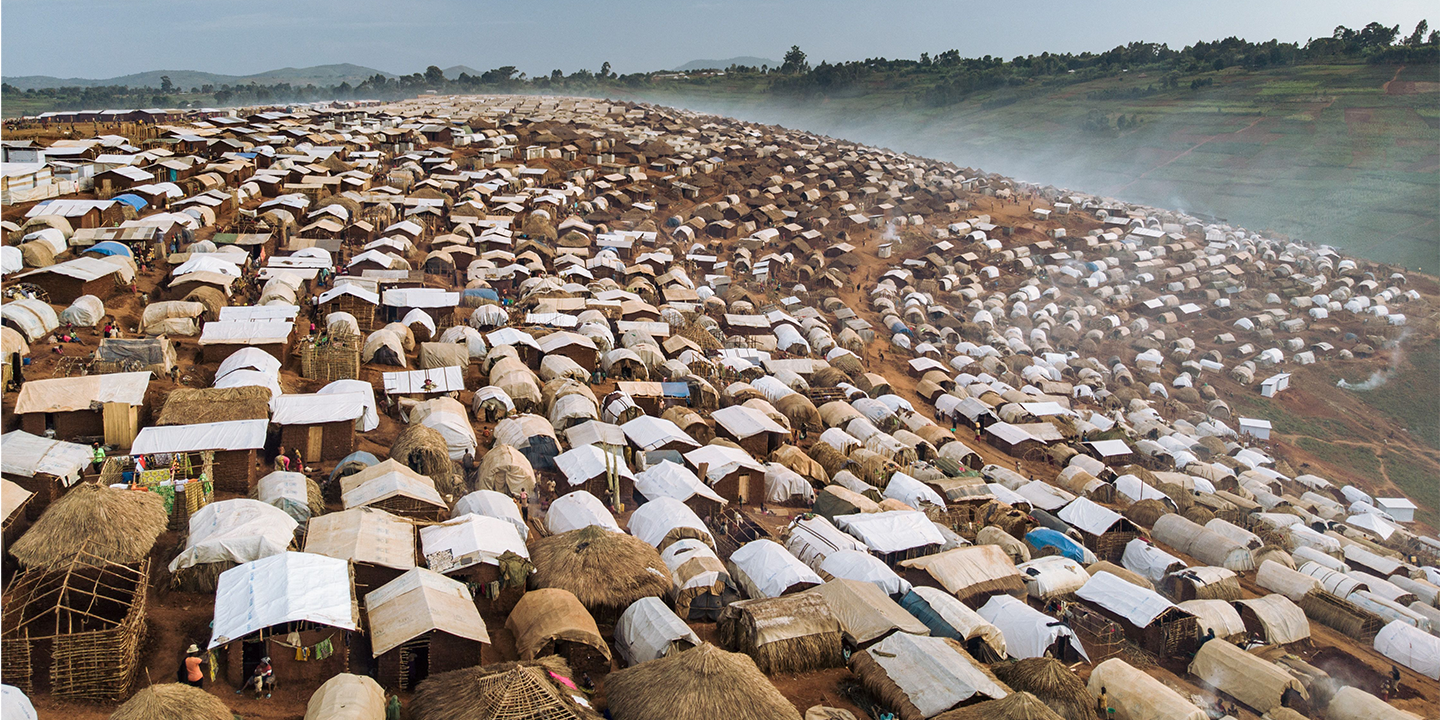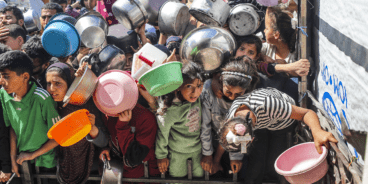

Atrocity Alert No. 356: Sudan, Democratic Republic of the Congo and Syria
Atrocity Alert is a weekly publication by the Global Centre for the Responsibility to Protect highlighting situations where populations are at risk of, or are enduring, mass atrocity crimes.
MASS GRAVES DISCOVERED IN WEST DARFUR, SUDAN
A mass grave with at least 87 people, including ethnic Massalit, was found in West Darfur, Sudan, according to an announcement made by the Office of the UN High Commissioner for Human Rights (OHCHR) on 13 July. OHCHR obtained credible information of the Rapid Support Forces (RSF) and allied militia allegedly killing civilians and hors de combat individuals around 13-21 June in El Geneina’s Al-Madaress and Al-Jamarek districts. People were reportedly forced to dispose of the bodies in a mass grave outside of El Geneina. Human Rights Watch also previously documented evidence that on 28 May the RSF and allied Arab militias summarily executed at least 28 Massalit and killed and injured dozens of civilians in the town of Misterei, West Darfur. Residents buried at least 59 people in mass graves following the attack.
The conflict that broke out between the Sudanese Armed Forces (SAF) and the RSF on 15 April is triggering an alarming escalation in ethnically motivated violence in various parts of the country, particularly in the Darfur region. During June both the UN Special Adviser on the Prevention of Genocide and the Head of the UN Mission in Sudan reported “an emerging pattern of large-scale targeted attacks against civilians based on their ethnic identities” and warned of a real risk of violence developing “into renewed campaigns of rape, murder, and ethnic cleansing amounting to atrocity crimes.” On 13 July the Chief Prosecutor of the International Criminal Court, Karim Khan, announced his Office is investigating alleged new international crimes committed in Darfur in the context of the current hostilities.
While a near shutdown in telecommunications has impeded access to information on abuses and civilian casualties, a growing body of evidence shows the scale of horrific events taking place across Darfur. Since late April the RSF and allied militias have rampaged through cities in West Darfur, including El Geneina and Misterei. They have reportedly killed people sheltering in their homes, on the streets or in hiding – including women and children – and burned down entire towns. Save the Children reported seeing “the bodies of hundreds of people – including children – left abandoned along the road, covered in flies” in El Geneina. Earlier this month, several UN officials sounded the alarm at increasing reports of sexual and gender-based violence. The Unit for Combatting Violence against Women under Sudan’s Ministry of Social Development documented 46 alleged cases of conflict-related sexual violence in Darfur while stating the actual figure is likely significantly higher.
The situation in Darfur requires an immediate and urgent response. UN member states should consider establishing an independent investigative and accountability mechanism to address all alleged human rights violations and abuses and related crimes in Sudan. Following the SAF’s rejection of the proposal by the Intergovernmental Authority on Development to deploy a regional standby force to protect civilians, regional powers should continue efforts to compel the SAF to allow this deployment given the escalating risk of atrocities. The international community must employ targeted sanctions against leaders of the RSF, SAF and armed groups responsible for atrocity crimes. Those states with leverage, including the United Arab Emirates and Egypt, must pressure warring parties to control allied militias and stop attacking civilians.
ALARMING RISE IN SEXUAL VIOLENCE AGAINST DISPLACED WOMEN AND GIRLS IN EASTERN DRC
A dramatic increase in grave cases of sexual violence against women and girls have been recorded in recent months in the Democratic Republic of the Congo’s (DRC) conflict-ridden eastern provinces of Ituri, North Kivu and South Kivu. More than 31,000 cases of gender-based violence were documented in the first three months of 2023 alone in these provinces. The number of incidents is likely significantly underreported given fear of shame stigma or retaliation.
Women and girls fleeing fighting have been at particularly heightened risk. Since March 2022 at least 2.8 million Congolese have been displaced by violence and insecurity in these provinces, where resurgent clashes between myriad armed groups and the government’s armed forces have increased the risk of atrocities. In the first three months of this year, 10,339 survivors in North Kivu – 66 percent of whom were raped – accessed gender-based violence services. Following a visit to the country during June, Pramila Patten, the UN’s Special Representative of the Secretary-General on Sexual Violence in Conflict, said that many women and girls reported the “daily risk” of sexual violence and assault while carrying out livelihood activities in and around displacement camps around Goma, the provincial capital, including while searching for food, water or collecting firewood for cooking.
Food insecurity and the lack of livelihood opportunities have also heightened the risks of exploitation and abuse. Some women are being forced to resort to harmful coping mechanisms, including transactional sex, in spontaneous settlements around Goma. The UN and humanitarian actors have received reports of 1,000 sites in Goma where displaced women and girls have been forced to engage in survival sex.
On 14 July the UN Security Council convened its annual open debate on conflict-related sexual violence, during which Special Representative Patten presented the latest report on patterns of such violence in over 20 countries. According to the report, the DRC was yet again the country with the highest number of verified cases last year. During the debate, Patten stressed, “The reality is that until we effectively raise the cost and consequences for committing, commanding or condoning sexual violence, we will never stem the tide of such violations.”
Survivors need urgent protection, as well as psychosocial and medical support. The international community should scale up humanitarian efforts for displaced populations. Government authorities should investigate, pursue and hold accountable all perpetrators of sexual violence, as well as implement the Framework for the Prevention of Conflict-Related Sexual Violence. Local and national authorities must ensure security at displacement sites in accordance with their primary obligation to protect civilians under International Humanitarian Law and in a manner that respects International Human Rights Law.
SECURITY COUNCIL VETO BY RUSSIA JEOPARDIZES HUMANITARIAN AID FOR MILLIONS IN SYRIA
On 11 July the UN Security Council (UNSC) failed to renew the “cross-border mandate,” which enabled the delivery of life-saving humanitarian aid from Türkiye to over four million people in northwest Syria. The draft resolution, tabled by Brazil and Switzerland, called for a nine-month extension of cross-border aid from the Bab al-Hawa crossing, as well as the expansion of domestic crossline humanitarian operations. Thirteen UNSC members voted in favor while China abstained and Russia vetoed the draft resolution. With this latest vote, Russia cast its 18th veto on the situation in Syria. Following the vote on the nine-month extension, Russia then tabled its own draft resolution for a six-month extension of cross-border aid, which received three votes against and 10 abstentions.
UN Secretary-General António Guterres expressed disappointment over the Council’s inability to renew cross-border aid operations, stating, “UN cross-border assistance remains a veritable lifeline for millions of people in northwest Syria as humanitarian needs have reached an all-time high since the start of the conflict.”
Since 2011 the Syrian government has systematically weaponized and obstructed humanitarian aid in violation of International Humanitarian Law. The UNSC first authorized cross-border deliveries in 2014, creating four points through which humanitarian aid could be delivered by road from Türkiye, Iraq and Jordan. However, Russia – a close ally of the Syrian government – and China have routinely expressed that aid should be delivered across domestic frontlines from government-held areas to people living in areas outside government control. In 2020, due to Russian pressure and several joint vetoes with China, the UNSC reduced the number of cross-border delivery points from four to one. Through Bab al-Hawa, trucks have delivered medicines, water, food, shelter materials and other lifesaving humanitarian supplies to millions of Syrians living in areas outside of government control.
Following the vote, the Syrian government informed Secretary-General Guterres that the government had taken “the sovereign decision to grant the United Nations and its specialized agencies permission to use Bab al-Hawa crossing to deliver humanitarian aid” for a period of six months. However, the Syrian government stipulated that deliveries would have to be “in full cooperation and coordination with the Syrian Government” and that the International Committee of the Red Cross and the Syrian Arab Red Crescent would “supervise and facilitate the distribution of humanitarian aid.” Consequently, the UN Office for the Coordination of Humanitarian Affairs told the UNSC that the Syrian government’s conditions are “unacceptable.” Requiring aid deliveries be overseen by the Red Cross or Red Crescent is “neither consistent with the independence of the United Nations nor practical,” as those organizations have no presence in northwest Syria.
As a result of Russia’s veto, the UN General Assembly – in accordance with Resolution 76/262 – is holding a dedicated session today, 19 July, to discuss the veto. During this meeting, the wider UN membership should explore more sustainable and efficient avenues to ensure that critical humanitarian aid reaches all Syrians in need throughout the country.
Related Content


Gaza: Starvation or Gunfire - This is Not a Humanitarian Response
